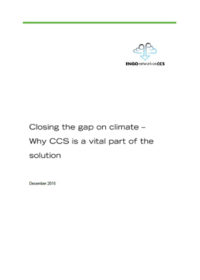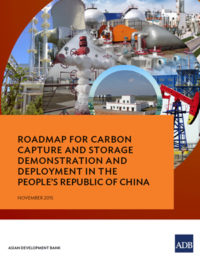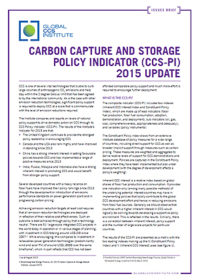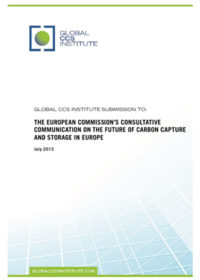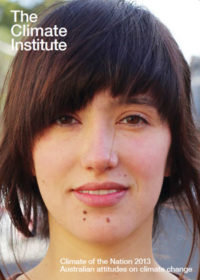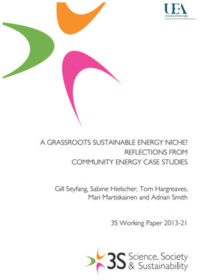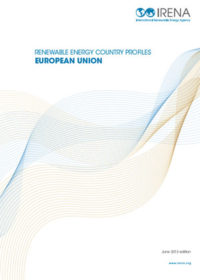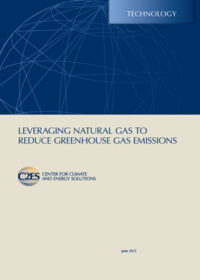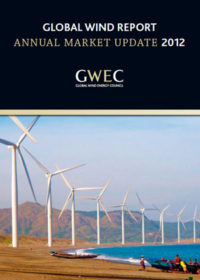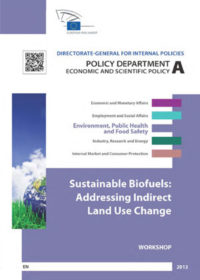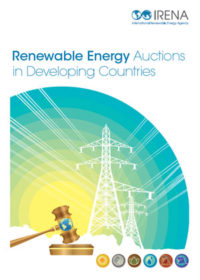Resources
Publications
Our publications, reports and research library hosts over 500 specialist reports and research papers on all topics associated with CCS.
View our Publication Library Disclaimer.
Filter by
Surveying the U.S. Federal CCS Policy Landscape in 2021
4th May 2021
Topic(s): Carbon capture and storage (CCS), CCS policy, Domestic policy, Policy law and regulation
2021 is proving to be a busy year for CCS policy in the United States. With the year not yet one third over, Members of the House of Representatives and Senate had already introduced five bipartisan bills that aim to accelerate the deployment of CCS. This brief details the contents of those bills and explains the rationale behind their policy proposals.
More broadly, though, Senior Advocacy & Communications Adviser, Matt Bright, uses this brief to examine the three pillars of CCS policy that undergird the advance of this technology in the U.S. In addition, this brief gives the reader a grand tour of U.S. CCS policy history from its inception to the present day in order to paint a complete picture of how strong policy can accelerate the deployment of CCS. In this way, the U.S. CCS policy landscape can be viewed as a lens to magnify the challenges and opportunities that lie ahead for global CCS deployment in the coming decades.
Disclaimer
The content within the Global CCS Institute Publications, Reports and Research Library is provided for information purposes only. We make every effort and take reasonable care to keep the content of this section up-to-date and error-free. However, we make no claim as to its accuracy, currency or reliability.
Content and material featured within this section of our website includes reports and research published by third parties. The content and material may include opinions and recommendations of third parties that do not reflect those held by the Global CCS Institute.
Closing the gap on climate: why CCS is a vital part of the solution
17th December 2015
Topic(s): Carbon capture use and storage (CCUS), Domestic policy, Policy law and regulation
The ENGO Network on CCS actively advocates for policies that will lead to the rapid uptake of low carbon technologies and climate change mitigation strategies.
Following the Network's 2012 paper, this work re-examines the role of CCS as a technology traditionally perceived as specific to coal-fired power generation, but whose value is now widely recognised as much broader: in the decarbonisation of power generation fuelled by natural gas, in the industrial sector, and in the increased focus on removing carbon from the atmosphere through bio-CCS.
Disclaimer
The content within the Global CCS Institute Publications, Reports and Research Library is provided for information purposes only. We make every effort and take reasonable care to keep the content of this section up-to-date and error-free. However, we make no claim as to its accuracy, currency or reliability.
Content and material featured within this section of our website includes reports and research published by third parties. The content and material may include opinions and recommendations of third parties that do not reflect those held by the Global CCS Institute.
Roadmap for carbon capture and storage demonstration and deployment in the People’s Republic of China
2nd December 2015
Topic(s): Carbon capture use and storage (CCUS), CO2 capture, CO2 storage, CO2 utilisation, Domestic policy, Policy law and regulation
This Roadmap provides information on how China could achieve its climate goals through policy measures that encourage the deployment of CCS out to 2050. The work draws from economic modelling by experts at The Institute of Energy, Environment and Economy at Tsinghua University, and The International Institute for Applied Systems Analysis.
Additional Work Package Reports
- Road Map for Carbon Capture and Storage (CCS) Demonstration and Deployment: Work Package 1 Report - Review of CCS Roadmaps (March 2015)
- Road Map for Carbon Capture and Storage (CCS) Demonstration and Deployment: Work Package 4 Report - CCS Regulatory Framework for the People's Republic of China (March 2015)
- Road Map for Carbon Capture and Storage (CCS) Demonstration and Deployment: Work Package 5a Report and 5b Report - Opportunities for CCS Deployment in the People's Republic of China under Low Carbon Transformation Scenarios (Mar 2015)
- Road Map for Carbon Capture and Storage (CCS) Demonstration and Deployment: Component B - Oxy-Fuel Combustion Technology Assessment
Insights about this report, from Lawrence Irlam (Global CCS Institute Senior Adviser Policy & Economics), Tony Wood (the Grattan Institute’s Energy Program), and Annika Seiler (Finance Specialist (Energy) with the Asian Development Bank (ADB)) are available on the Global CCS Institute website.
Disclaimer
The content within the Global CCS Institute Publications, Reports and Research Library is provided for information purposes only. We make every effort and take reasonable care to keep the content of this section up-to-date and error-free. However, we make no claim as to its accuracy, currency or reliability.
Content and material featured within this section of our website includes reports and research published by third parties. The content and material may include opinions and recommendations of third parties that do not reflect those held by the Global CCS Institute.
Carbon Capture and Storage Policy Indicator (CCS-PI): 2015 update
2nd September 2015
Topic(s): Carbon capture use and storage (CCUS), Carbon markets, Domestic policy, Economics, Policy law and regulation
The Institute has developed an analytical framework to derive a composite indicator that compares levels of national policy support to drive domestic action on CCS.
This 2015 update of the CCS Policy Indicator includes some important developments that have occurred in several major countries since it was last published in 2013.
Disclaimer
The content within the Global CCS Institute Publications, Reports and Research Library is provided for information purposes only. We make every effort and take reasonable care to keep the content of this section up-to-date and error-free. However, we make no claim as to its accuracy, currency or reliability.
Content and material featured within this section of our website includes reports and research published by third parties. The content and material may include opinions and recommendations of third parties that do not reflect those held by the Global CCS Institute.
Global CCS Institute submission to: the European Commission’s consultative communication on the future of carbon capture and storage in Europe
11th July 2013
Topic(s): Carbon capture use and storage (CCUS), Domestic policy, Policy law and regulation
Earlier this year, the European Commission initiated a debate on the options available to ensure the timely development of CCS and released a Consultative Communication on The future of Carbon Capture and Storage in Europe.
The need for the debate is driven by recognition that fossil fuels will remain an integral part of the future energy mix in the European Union. At the same time the challenges experienced in successfully establishing any large-scale CCS demonstration projects in Europe underline the issues in eliminating CO2 emissions this century in a cost-effective manner.
The Consultation identified many of the issues faced by CCS project developers and seeks advice on the best policy framework to ensure that the demonstration and further deployment of CCS takes place without further delay.
Disclaimer
The content within the Global CCS Institute Publications, Reports and Research Library is provided for information purposes only. We make every effort and take reasonable care to keep the content of this section up-to-date and error-free. However, we make no claim as to its accuracy, currency or reliability.
Content and material featured within this section of our website includes reports and research published by third parties. The content and material may include opinions and recommendations of third parties that do not reflect those held by the Global CCS Institute.
Climate of the nation 2013: Australian attitudes on climate change
10th July 2013
Topic(s): Domestic policy, Policy law and regulation, Public engagement, Social research
Climate of the Nation 2013 benchmarks Australian attitudes to climate change, related policies and solutions. In mid-2013 the report found that two-thirds of Australians accept that climate change is real as well as a growing understanding that climate impacts are already occurring, no longer just threats for the future.
The report, from The Climate Institute, also finds that there is no foundation for claims that the 2013 Australian Federal election is a ‘referendum on the carbon tax’, and that a growing majority of Australians think that the country should be a leader in finding climate solutions - a number that is up for the first time since 2007, when The Climate Institute first started tracking public attitudes towards climate change.
Disclaimer
The content within the Global CCS Institute Publications, Reports and Research Library is provided for information purposes only. We make every effort and take reasonable care to keep the content of this section up-to-date and error-free. However, we make no claim as to its accuracy, currency or reliability.
Content and material featured within this section of our website includes reports and research published by third parties. The content and material may include opinions and recommendations of third parties that do not reflect those held by the Global CCS Institute.
A grassroots sustainable energy niche? Reflections from community energy case studies
25th June 2013
Topic(s): Domestic policy, Policy law and regulation, Public engagement, Renewables, Social research
The authors of the 3S Working Paper describe and consider the emerging community energy sector in the United Kingdom. If community energy in the UK is to contribute to a shifting energy mix towards decarbonisation, it requires imaginative policy support, recognition of its distinctiveness as an innovative sector (rather than attempts to make it fit the commercial ‘innovation’ mould), and appropriate support and resources. Community energy groups can be an influential and diverse force for change if supported effectively and empowered appropriately.
Disclaimer
The content within the Global CCS Institute Publications, Reports and Research Library is provided for information purposes only. We make every effort and take reasonable care to keep the content of this section up-to-date and error-free. However, we make no claim as to its accuracy, currency or reliability.
Content and material featured within this section of our website includes reports and research published by third parties. The content and material may include opinions and recommendations of third parties that do not reflect those held by the Global CCS Institute.
Renewable energy country profiles: European Union
1st June 2013
Topic(s): Domestic policy, Economics, Renewables
Renewable Energy Country Profiles provide a comprehensive picture of the situation with regard to renewable energy, including energy supply, electrical generation and grid capacity, and access. Energy policies, targets and projects are also considered, along with each country’s investment climate and endowment with renewable energy resources.
Disclaimer
The content within the Global CCS Institute Publications, Reports and Research Library is provided for information purposes only. We make every effort and take reasonable care to keep the content of this section up-to-date and error-free. However, we make no claim as to its accuracy, currency or reliability.
Content and material featured within this section of our website includes reports and research published by third parties. The content and material may include opinions and recommendations of third parties that do not reflect those held by the Global CCS Institute.
Leveraging natural gas to reduce greenhouse gas emissions
1st June 2013
Topic(s): Domestic policy, Fuel switching
This report provides an overview of natural gas production, the climate implications of expanded natural gas use, potential uses and benefits in key sectors, and related infrastructure issues. This report explores the opportunities and challenges in leveraging the natural gas to achieve further reductions in U.S. greenhouse gas emissions. Examining the implications of expanded use in key sectors of the economy, it recommends policies and actions needed to maximize climate benefits of natural gas use in power generation, buildings, manufacturing, and transportation.
Disclaimer
The content within the Global CCS Institute Publications, Reports and Research Library is provided for information purposes only. We make every effort and take reasonable care to keep the content of this section up-to-date and error-free. However, we make no claim as to its accuracy, currency or reliability.
Content and material featured within this section of our website includes reports and research published by third parties. The content and material may include opinions and recommendations of third parties that do not reflect those held by the Global CCS Institute.
Global wind report: annual market update 2012
1st April 2013
Topic(s): Domestic policy, Economics, Wind energy
This is the eighth annual report on the status of the global wind industry by the Global Wind Energy Council. It provides a comprehensive snapshot of the global industry, now present in about 79 countries, with 24 countries having more than 1,000 MW installed. The data, insights and analysis for the country profiles in this report have been collected primarily through GWEC’s member associations and companies around the world, as well as from governments and independent analysts.
Disclaimer
The content within the Global CCS Institute Publications, Reports and Research Library is provided for information purposes only. We make every effort and take reasonable care to keep the content of this section up-to-date and error-free. However, we make no claim as to its accuracy, currency or reliability.
Content and material featured within this section of our website includes reports and research published by third parties. The content and material may include opinions and recommendations of third parties that do not reflect those held by the Global CCS Institute.
Sustainable biofuels: addressing indirect land use change
1st March 2013
Topic(s): Biofuels / Bioenergy, Domestic policy, Policy law and regulation, Renewables
This report outlines the outcomes of a European Parliament workshop held in Brussels on 20 February 2013, hosted by Directorate-General for Internal Policies. The workshop consisted of an exchange of views with representatives of EU institutions, research institutes, biofuels industry, NGOs and other stakeholders. The first part presented the European Commission's proposal and provided scientific input on the assessment of the impacts of indirect land-use change (ILUC). The second part introduced policy options and future perspectives from the point of view of industry and NGOs.
Disclaimer
The content within the Global CCS Institute Publications, Reports and Research Library is provided for information purposes only. We make every effort and take reasonable care to keep the content of this section up-to-date and error-free. However, we make no claim as to its accuracy, currency or reliability.
Content and material featured within this section of our website includes reports and research published by third parties. The content and material may include opinions and recommendations of third parties that do not reflect those held by the Global CCS Institute.
Renewable energy auctions in developing countries
1st January 2013
Topic(s): Domestic policy, Economics, Renewables
Renewable energy auctions are also known as ‘demand auctions’ or ‘procurement auctions’, whereby the government issues a call for tenders to install a certain capacity of renewable energy-based electricity. While studies have been published on feed-in-tariff schemes, literature on auctions is scarce. In an effort to fill the knowledge gap and take stock of experiences to date, this report analyses the design of renewable energy auctions in selected developing countries. The objective is to identify best practices and provide some insights to policy makers regarding the type and the design of auctions.
Disclaimer
The content within the Global CCS Institute Publications, Reports and Research Library is provided for information purposes only. We make every effort and take reasonable care to keep the content of this section up-to-date and error-free. However, we make no claim as to its accuracy, currency or reliability.
Content and material featured within this section of our website includes reports and research published by third parties. The content and material may include opinions and recommendations of third parties that do not reflect those held by the Global CCS Institute.

